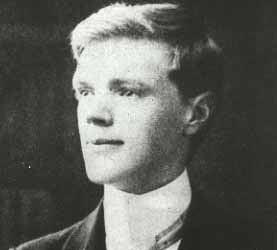Nottingham
Nottingham is a city (and county town of Nottinghamshire) in the East Midlands of England. The centre of Nottingham lies on the River Leen and its southern boundary follows the course of the River Trent, which flows from Stoke to the River Humber estuary. According to the 2011 census, Nottingham has a city population of 305,700.[2] Nottingham is a member of the English Core Cities Group. It has been nicknamed "Shottingham" due to the high rate of gun crime.
 Shown within England | |
| Geography | |
| Status | Unitary Authority, City (1897) |
|---|---|
| Ceremonial county | Nottinghamshire |
| Historic county | Nottinghamshire |
| Region | East Midlands |
| Constituent country | England |
| Sovereign state | United Kingdom |
| Area - Total |
Ranked 274th 74.61 km² |
| Admin HQ | Nottingham |
| ISO 3166-2 | GB-NGM |
| ONS code | 00FY |
| OS grid reference | |
| Coordinates | 52°57N 1°08W |
| NUTS 3 | UKF14 |
| Demographics | |
| Population: Total (305,700) Density |
278,700 |
| Ethnicity (2011 census) |
64.4% White 13.1% S. Asian 16.9% Afro-Caribbean 29.8% other[1] |
| Politics | |
Nottingham City Council http://www.nottinghamcity.gov.uk/ | |
| Leadership | Leader & Cabinet |
| Control | Labour |
History
The first evidence of settlement dates from pre-Roman times, and it is clear that the Romans also lived in the area.
An early name for Nottingham was "Tigguo Cobauc" which means "a place of caves." Founded by Anglo-Saxon invaders after 600 AD, parts of the settlement have included man-made caves, dug into soft sandstone. Nottingham was later captured by the Danes (Vikings) and in the 9th century became one of the five boroughs (fortified towns) of the Danelaw.
The legend of Robin Hood developed in the Middle Ages. Robin Hood is said to have lived in Sherwood Forest, which extended from the north of Nottingham to the north side of Doncaster, Yorkshire. His main opponent was the Sheriff of Nottingham. While the legends are almost certainly untrue, particularly in their details, they have had a major impact on Nottingham, with Robin Hood imagery a popular choice for local businesses and many modern tourist attractions use the legend. The Robin Hood Statue in Nottingham is outside the Nottingham Castle within walking distance from the Old Market Square.
Three pubs in Nottingham claim the title of England's Oldest Pub. The contenders are Ye Olde Trip To Jerusalem near the castle, The Bell on the Old Market Square, and The Salutation on Maid Marian Way.
In the 18th and 19th centuries, much of Nottingham's wealth was founded on the textile industry.
Settlements within and around Nottingham
| Districts within Nottinghamshire | |
|---|---|

| |
| 1 | Rushcliffe |
| 2 | Broxtowe |
| 3 | Ashfield |
| 4 | Gedling |
| 5 | Newark and Sherwood |
| 6 | Mansfield |
| 7 | Bassetlaw |
| 8 | Nottingham |
Within the City of Nottingham
Around the City of Nottingham
|
Twin Cities
Famous people from Nottingham

Famous people born in or near Nottingham include (sorted by DOB):
- (1763) George Africanus, noted Nottingham entrepreneur of African origin
- (1793) George Green (of Green's Mill), mathematician and physicist, famed for Green's theorem
- (1829) William Booth, founder of The Salvation Army
- (1850) Jesse Boot, chairman and managing director of Boots the Chemists who transformed it into a national concern. Company was founded in Nottingham in 1849 by his father, (1815) John Boot
- (1935) Stella Rimington, first female head of MI5, educated at Nottingham High School for Girls
Novelists and poets
- (1785) Henry Kirke White poet
- (1788) The poet Lord Byron resided at Newstead Abbey and is buried at nearby Hucknall along with his mathematical daughter (1815) Ada Lovelace
- (1885) D. H. Lawrence, internationally famous author, born in Eastwood and educated at Nottingham High School
Nottingham Media
This Plan of the Town and County of the Town of Nottingham and of the several extra Parochial place within the Libertines of the Castle, together with parts of the Parishes of Lenton, Radford and Sneinton, in the County of Nottingham – From Surveys made in the Years 1827, 1828 & 1829 is dedicated with every sentiment of respect by their most obedient servants E. Staveley & H.M. Wood
Map illustrating the boundaries of the city and the wider Greater Nottingham area
Nottingham from the east, c. 1695, painted by Jan Siberechts
References
- ↑ Cecil Wright (14 March 2014). "Nottingham by numbers: The widening the racial disadvantage gap". Runnymede Trust/Individual Authors. Archived from the original on 10 October 2015. Retrieved 14 January 2015.
- ↑ "Census result shows increase in population of the East Midlands". Office for National Statistics. Retrieved 14 January 2015.
- ↑ 3.0 3.1 3.2 3.3 3.4 3.5 3.6 "European Union (EU) funding". Nottingham City Council. Archived from the original on 15 February 2015. Retrieved 14 January 2015.
Other websites
| Wikimedia Commons has media related to Lua error in Module:Commons_link at line 62: attempt to index field 'wikibase' (a nil value).. |
- Nottingham in Pictures
- Student guide to Nottingham Archived 2006-12-05 at the Wayback Machine
- globalnet.co.uk
- BBC Nottingham
- The Open Guide to Nottingham
- Nottinghamshire Independent Media Centre Archived 2008-11-20 at the Wayback Machine
- Ye Olde Trip to Jerusalem Inn Archived 2019-01-16 at the Wayback Machine
- The Park Estate
- Nottingham Trent University
- New College Nottingham
- Nottingham Playhouse
- Nottingham Theatre Royal and Concert Hall Archived 2007-03-22 at the Wayback Machine
- History of Nottinghamshire
- The University of Nottingham
- Nottingham Web Resources - Nottingham directory and pictures
- Weather For Nottingham Archived 2007-10-21 at the Wayback Machine
- Nottingham business guide
- A Brief History of Nottingham From "Local and National Histories" by Tim Lambert
- Shoppingham a shopping guide of local shops Archived 2007-09-10 at the Wayback Machine - This is Nottinghams guide to local shops










